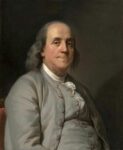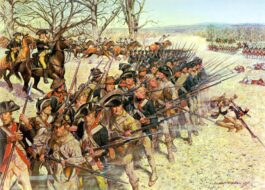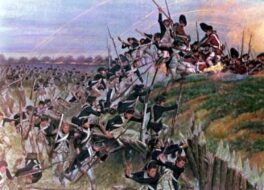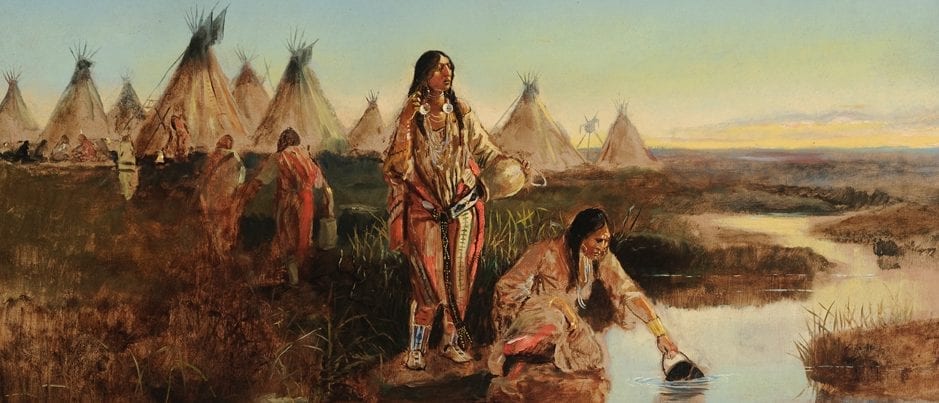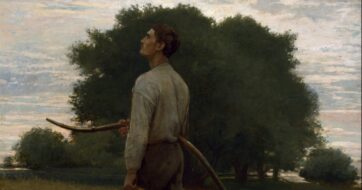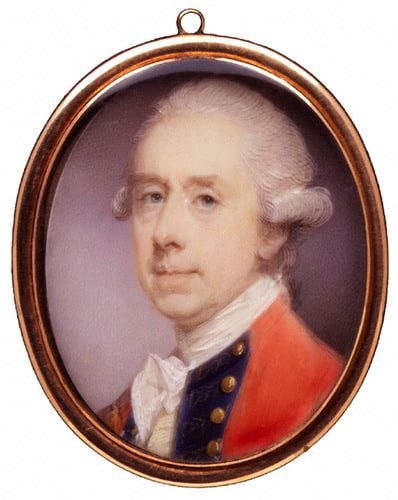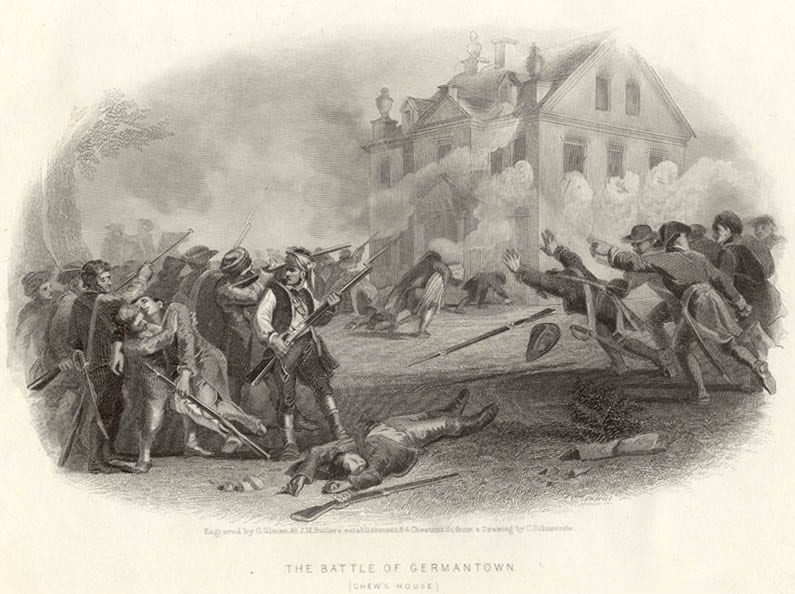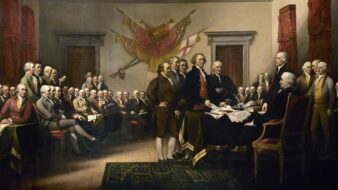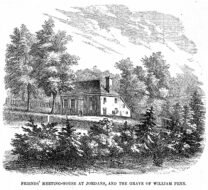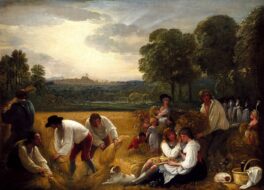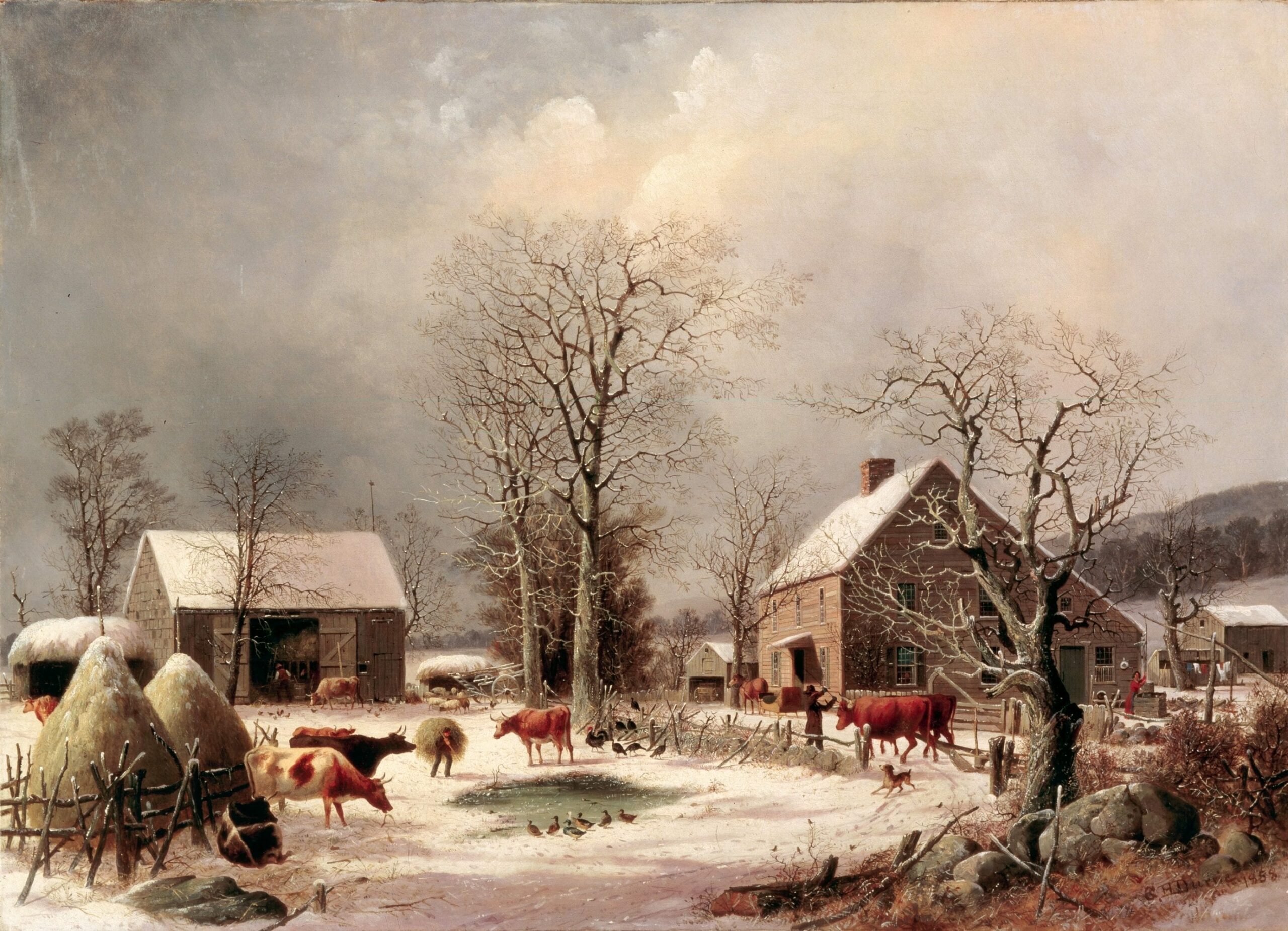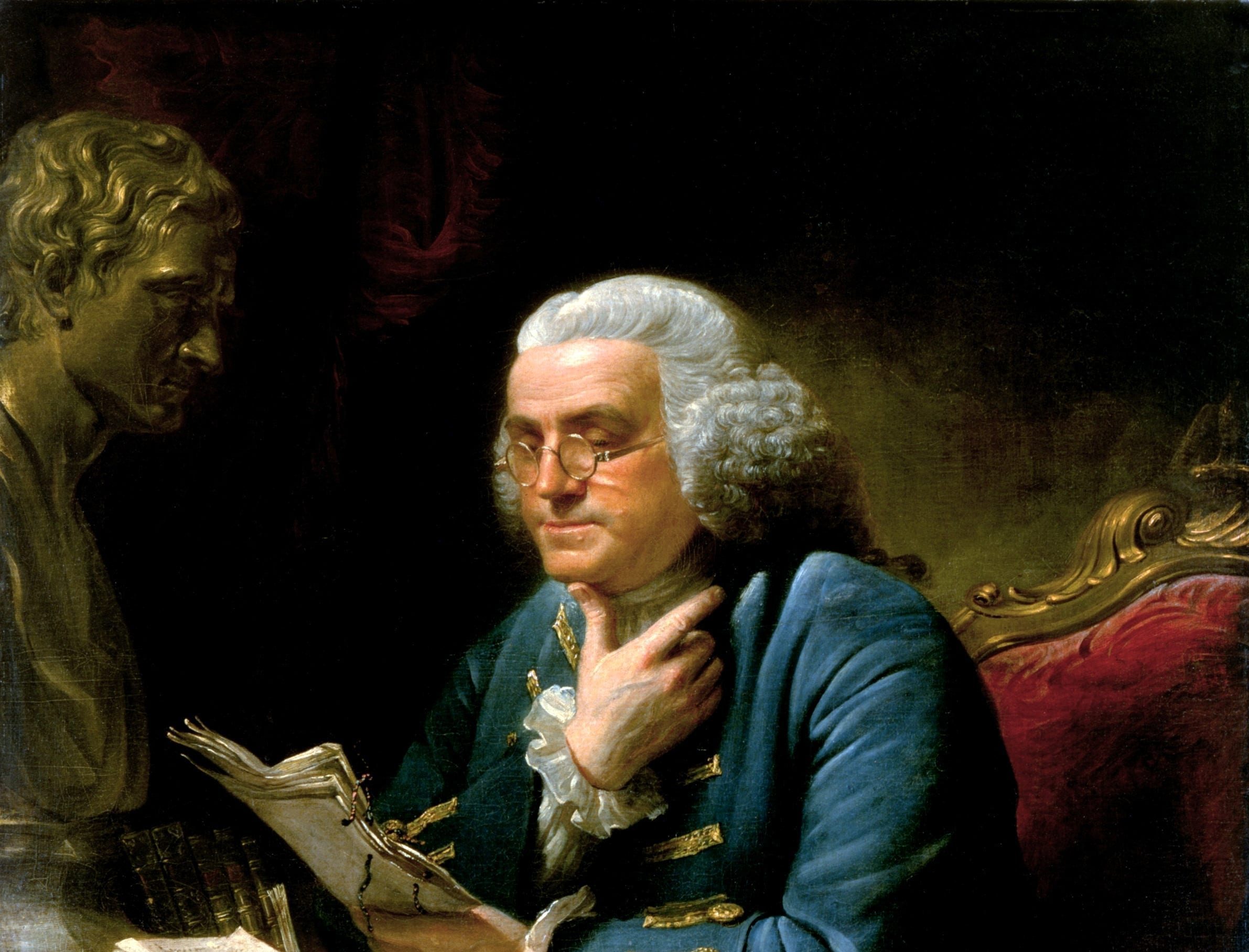WE were halted at six o’clock in the morning [October 9, 1777], to our general amazement. General Burgoyne ordered the artillery to be drawn up in a line, and to have it counted. This gave much dissatisfaction, as a few marches more would have ensured our safety. My husband was exhausted by fatigue, and took a seat in the calash, where my maids made room for him; and he slept for three hours upon my shoulder. In the meantime, Captain Willoe brought me his pocket-book, containing bank-notes, and Captain Geismar, a beautiful watch, a ring, and a well provided purse, requesting me to keep them, which I promised to do to the last. At length we recommenced our march; but scarcely an hour had elapsed, before the army was again halted, because the enemy was in sight. They were but two hundred in number, who came to reconnoitre, and who might easily have been taken, had not General Burgoyne lost all his presence of mind. The rain fell in torrents… On the 9th, it rained terribly the whole day; nevertheless we kept ourselves ready to march. The savages had lost their courage, and they walked off in all directions. The least untoward event made them dispirited, especially when there was no opportunity for plunder. My chamber-maid exclaimed the whole day against her fate, and seemed mad with despair. I begged her to be quiet, unless she wished to be taken for a savage. Upon this she became still more extravagant, and asked me, “If I should be sorry for it?”—”Surely,” replied I.—She then tore her cap from her head, and let her hair fall upon her face. “You take it quite easily,” said she, “for you have your husband; but we have nothing but the prospect of being killed, or of losing the little we possess.”…
We reached Saratoga about dark, which was but half an hour’s march from the place where we had spent the day. I was quite wet, and was obliged to remain in that condition, for want of a place to change my apparel. I seated myself near the fire, and undressed the children, and we then laid ourselves upon some straw.—I asked General Phillips, who came to see how I was, why we did not continue our retreat, my husband having pledged himself to cover the movement, and to bring off the army in safety. “My poor lady,” said he, “you astonish me. Though quite wet, you have so much courage as to wish to go farther in this weather. What a pity it is that you are not our commanding general! He complains of fatigue, and has determined upon spending the night here, and giving us a supper.”
It is very true, that General Burgoyne liked to make himself easy, and that he spent half his nights in singing and drinking, and diverting himself.… I refreshed myself at 7 o’clock, the next morning, (the 10th of October,) with a cup of tea, and we all expected that we should soon continue our march.… About 2 o’clock, we heard again a report of muskets and cannon, and there was much alarm and bustle among our troops. My husband sent me word, that I should immediately retire into a house which was not far off. I got into my calash with my children, and when we were near the house, I saw, on the opposite bank of the Hudson, five or six men, who aimed at us with their guns. Without knowing what I did, I threw my children into the back part of the vehicle, and laid myself upon them. At the same moment the fellow fired, and broke the arm of a poor English soldier, who stood behind us, and who being already wounded sought a shelter. Soon after our arrival, a terrible cannonade began, and the fire was principally directed against the house, where we had hoped to find a refuge, probably because the enemy inferred, from the great number of people who went towards it, that this was the headquarters of the generals, while, in reality, none were there except women and crippled soldiers. We were at last obliged to descend into the cellar, where I laid myself in a corner near the door. My children put their heads upon my knees. An abominable smell, the cries of the children, and my own anguish of mind, did not permit me to close my eyes, during the whole night. On the next morning, the cannonade begun anew, but in a different direction. … Eleven cannon-balls passed through the house, and made a tremendous noise. A poor soldier, who was about to have a leg amputated, lost the other by one of these balls. All his comrades ran away at that moment, and when they returned, they found him in one corner of the room, in the agonies of death. I was myself in the deepest distress, not so much on account of my own dangers, as of those to which my husband was exposed, who, however, frequently sent me messages, inquiring after my health…
The want of water continuing to distress us, we could not but be extremely glad to find a soldier’s wife so spirited as to fetch some from the river, an occupation from which the boldest might have shrunk, as the Americans shot every one who approached it. They told us afterwards that they spared her on account of her sex.…
On the 17th of October, the capitulation was carried into effect. The generals waited upon the American General Gates, and the troops surrendered themselves prisoners of war and laid down their arms. The time had now come for the good woman who had risked her life to supply us with water, to receive the reward of her services. Each of us threw a handful of money into her apron; and she thus received more than twenty guineas. At such a moment at least, if at no other, the heart easily overflows with gratitude.
At last, my husband’s groom brought me a message to join him with the children. I once more seated myself in my dear calash, and, while riding through the American camp, was gratified to observe that no body looked at us with disrespect, but, on the contrary, greeted us, and seemed touched at the sight of a captive mother with three children. I must candidly confess that I did not present myself, though so situated, with much courage to the enemy, for the thing was entirely new to me. When I drew near the tents, a good looking man advanced towards me, and helped the children from the calash, and kissed and caressed them: he then offered me his arms, and tears trembled in his eyes. “You tremble,” said he; “do not be alarmed, I pray you.” “Sir,” cried I, “a countenance so expressive of benevolence, and the kindness which you have evinced towards my children, are sufficient to dispel all apprehension.” He then ushered me into the tent of General Gates…
…The gentleman who had received me with so much kindness, came and said to me, “You may find it embarrassing to be the only lady in such a large company of gentlemen; will you come with your children to my tent, and partake of a frugal dinner, offered with the best will?” “By the kindness you show to me,” returned I, “you induce me to believe that you have a wife and children.” He informed me that he was General Schuyler. He regaled me with smoked tongues, which were excellent, with beef steaks, potatoes, fresh butter, and bread. Never did a dinner give me so much pleasure as this. I was easy, after many months of anxiety, and I read the same happy change in the countenances of those around me…




